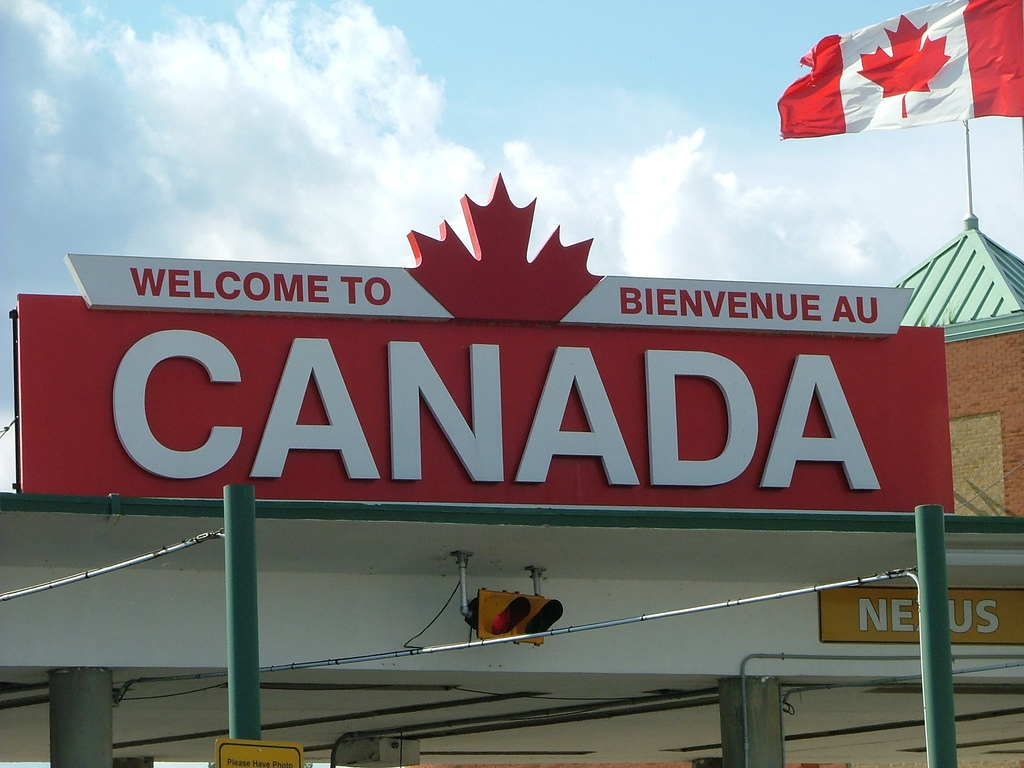


Mitch’s Blog
Trouble on the Border
Wednesday, June 29, 2022
I was blessing my good luck when I saw the sign that there was less than a five minute wait at the Peace Arch crossing into British Columbia. Gonna sail right through and be sure to catch my ferry back to Vancouver Island. It was the return from a quick trip down to Palm Springs for a neighbor son’s wedding, then back to finish my month in our quiet hideout in Parksville,  population 10,000.
population 10,000.
It was even better than the minimal wait. I rolled right up to the border guard and presented my passport.
- Where are you going?
- To Parksville, on Vancouver Island. We have a house there.
- What are you going to be doing?
- Well, spending a lot of time at the beach and finish teaching a class.
I should have known. NEVER offer any more than the necessary information to border guards, particularly one that has more than the usual amount of free time on a quiet morning guarding against marauders from the south. The questions began about the class I was teaching. On a tourist visa.
I was diverted from Highway 99, the road home, to the Border Services office, also quite empty on a Monday morning. More questions about my class, where, who, what, for whom, how long. I answered honestly. I really have nothing to hide.
Really, I don’t. I have volunteer for two years now to teach at Elder College, a seniors program in Parksville and neighboring communities. While it is affiliated with Vancouver Island University, it is designed as life enrichment for older members of the community in a town that has more than its fair share of elders. The average student age is older than mine. That’s old. The program has no curriculum, offers no degrees. Classes have no reading, no tests, no assignments. No grading papers!
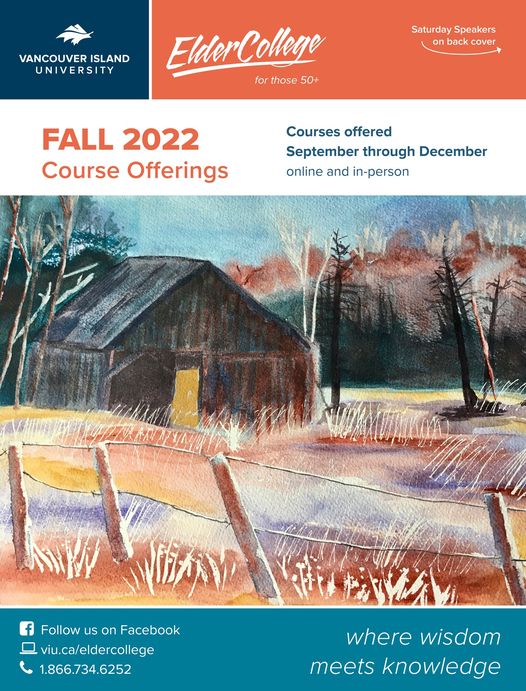 They find people with skills in the community and invite them to teach it to other seniors. With the pandemic, they’ve switched to online classes, so I now have students from Victoria, Vancouver and even Ontario. A recent outreach program has connected to the assisted living homes in the area, offering courses to be piped into their public room for a group of otherwise homebound elders. Even with the decline of the pandemic, most students still want to take classes online, so I’ve offered hybrid courses: one in-person class a week, the same class on line the next day.
They find people with skills in the community and invite them to teach it to other seniors. With the pandemic, they’ve switched to online classes, so I now have students from Victoria, Vancouver and even Ontario. A recent outreach program has connected to the assisted living homes in the area, offering courses to be piped into their public room for a group of otherwise homebound elders. Even with the decline of the pandemic, most students still want to take classes online, so I’ve offered hybrid courses: one in-person class a week, the same class on line the next day.
My archaeology classes are among of the most academic ones they teach. I’ve taken a wine tasting class in the program, which also skews heavily to memoir writing, scrapbooking, yoga and other forms of physical and personal development, investment strategies, and tourist experiences. But the key here is that ALL of the instructors are volunteers. No one gets paid. This is volunteer work, not a job. I made that point clear as I was being grilled by a sequence of uniformed officers.
I felt no concern as the first Border Services officer frowned over his computer. Then came the supervisor, with additional questions. Still, no concern. After all, why would they be worried about a community volunteer. After an hour, I began looking at my watch as making my ferry reservation was now looking less manageable.
Finally, I was called back by the attending guard.
- You need to get a work permit?
- A what?
- A work permit?
- But I’m a volunteer.
- Yes, but you need a work visa. It’s easy, the university can help you get one.
I stammered, I sputtered. But I couldn’t fathom the directive and, with that ferry reservation in mind, I left in a state of shock. Arguing with a border guard who is firm in their direction is an invitation to be denied entry. I would solve this problem later.
A work permit?
I’ve been loving my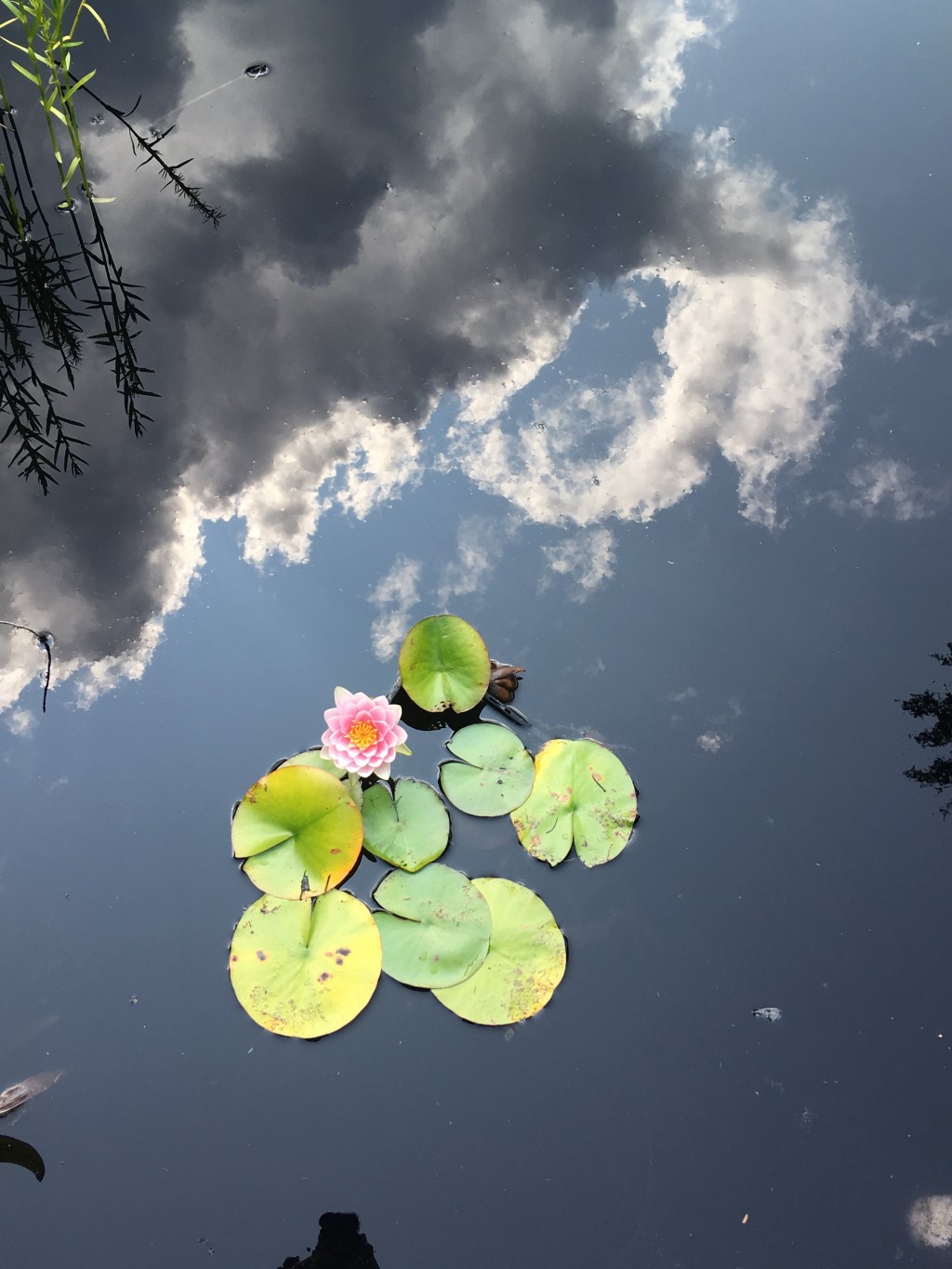
A work permit?
My call to the university was met with the same confusion I was experiencing, followed by typical Canadian sympathy and helpfulness. The program director found the office at VIU that deals with things like work permits and asked what to do. Of course, VIU won’t apply for one for me. It costs effort and money to do that and I literally have no employment relationship with the university. But they were able to at least shed some light on why I was asked to get a permit. If Elder College were a regular degree program, I might be taking a job away from an underemployed Canadian archaeologist who would have been hired to teach these courses instead of using a retired foreign volunteer. I would love for them to do that. There certainly are plenty of underemployed archaeologists in Canada.
But Elder College doesn’t work that way. They have a pool of volunteer instructors and teach whatever those instructors want to teach. If they don’t have anyone teaching Ancient Civilizations among their volunteers, it doesn’t get taught.
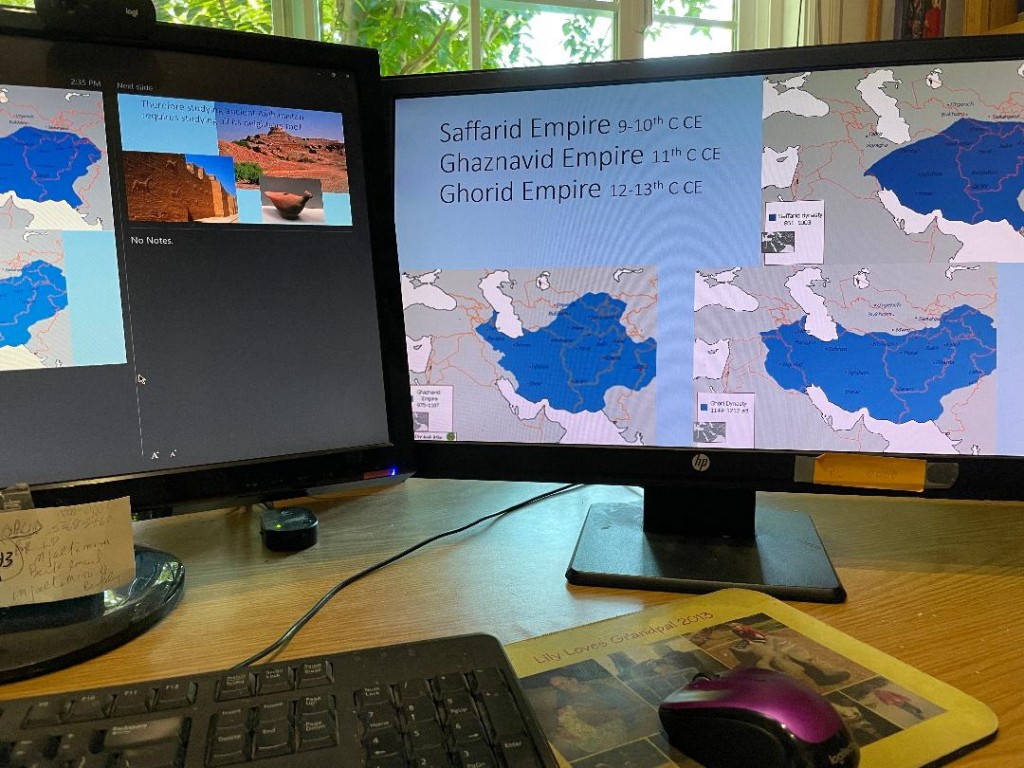 So Regan, the program head, got me an official letter explaining Elder College better than I was obviously able to do, my volunteer role there, and asking them to eliminate the work permit requirement. Now all I had to do was to find the right person at Border Services to present this letter to and get them to scratch that notation off my file in their database.
So Regan, the program head, got me an official letter explaining Elder College better than I was obviously able to do, my volunteer role there, and asking them to eliminate the work permit requirement. Now all I had to do was to find the right person at Border Services to present this letter to and get them to scratch that notation off my file in their database.
Simple, huh?
It seemed that way at first. I called the Border Services office, even a toll free number from the US and spoke to Gail, a helpful woman, who agreed that a work permit for volunteer work was a silly idea. Sat on hold for a while when she came back with the news that Border Services couldn’t help me, though they created the problem. I needed to talk to Immigration, Refugee, and Citizenship Department (IRC). You know, the folks who are dealing with Ukranian refugees, Somalians who want to come live in Canada with their aunties, grunts from Venezuela looking to work in the tar sands of Alberta, and those who have had difficulty getting in during covid times. They are a bit busy this year. But she gave me a handy toll-free phone number to call and sort it out.
Toll free in Canada. It doesn’t work from the USA. Poring for an hour over the IRC website does not offer another number to use. It did, though, get me to the page on work permits and how to appeal when you are denied one.
"Under Canada's Immigration and Refugee Protection Act, there is no formal right of appeal on temporary resident decisions. Instead, you can reapply. If possible, a different officer will examine the application."
Let me see if I understand this. If you are denied your request, just ask again. Maybe a different officer will see it differently? That’s likely true for most requests made to most government departments, but I’ve never seen a bureaucratic organization come out and say it so blatantly.
But all those applications and denials and non-appeals required one thing: you have to fill out one of their applications for residence, citizenship, refugee status, or something similar. A case number. I had no case number. None of the pages and page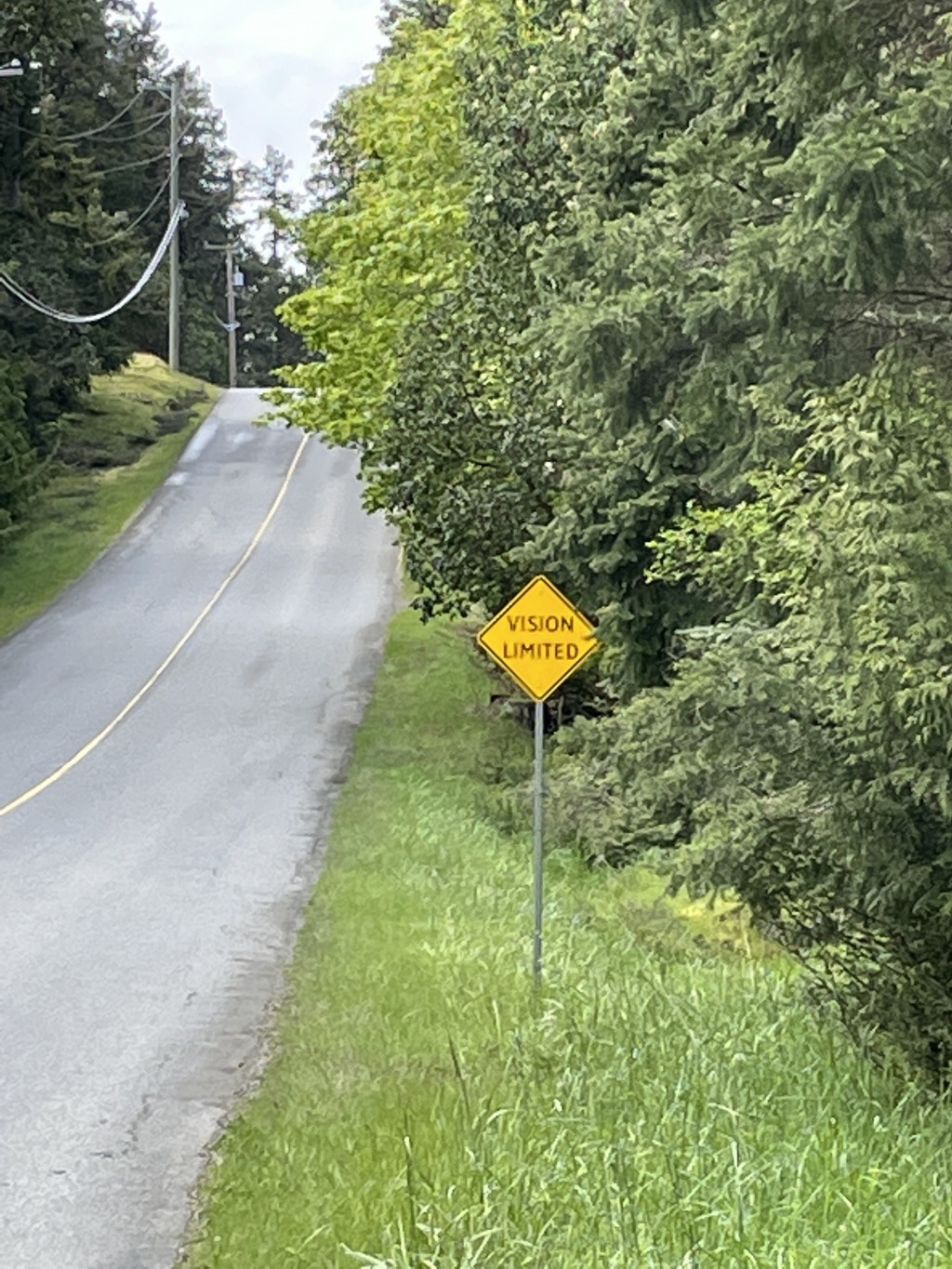
You could also ask a question of them via an online portal. But you had to pick from their menu the reason for your question. Permanent Residence? An Afghan refugee? Helping a relative get settled in Manitoba? None of the choices fit my question. I picked “technical difficulties” as the reason. After all, I was having significant technical difficulties finding a human in IRC to speak with.
Another call to Border Services, explaining how the phone number didn’t work. Another helpful woman. She simply offered to connect me to IRC, who didn’t pick up and have no answering machine message. Instead, I got a fatal buzzing of a call that will never be completed. IRC doesn’t really want to talk to people, do they? Can you blame them?
So here we are, a week away from heading back to Canada for a nice month at the beach. They offer no classes over the summer. My worry in all of this has been that I will get to the border and be turned away because I don’t have the requisite work permit. I’ve done the best I can with a letter from the university and a screen shot of the inquiry I made. Maybe this will be easier to navigate once I’m over the border. Stay tuned.
I’ve also told the university that I won’t be able to teach unless I can get this cleared up. That would be sad.
© Scholarly Roadside Service
Back to Scholarly Roadkill Blog
Scholarly Roadside Service
ABOUT
Who We Are
What We Do
SERVICES
Help Getting Your Book Published
Help Getting Published in Journals
Help with Your Academic Writing
Help Scholarly Organizations Who Publish
Help Your Professional Development Through Workshops
Help Academic Organizations with Program Development
CLIENTS
List of Clients
What They Say About Us
RESOURCES
Online Help
Important Links
Fun Stuff About Academic Life


